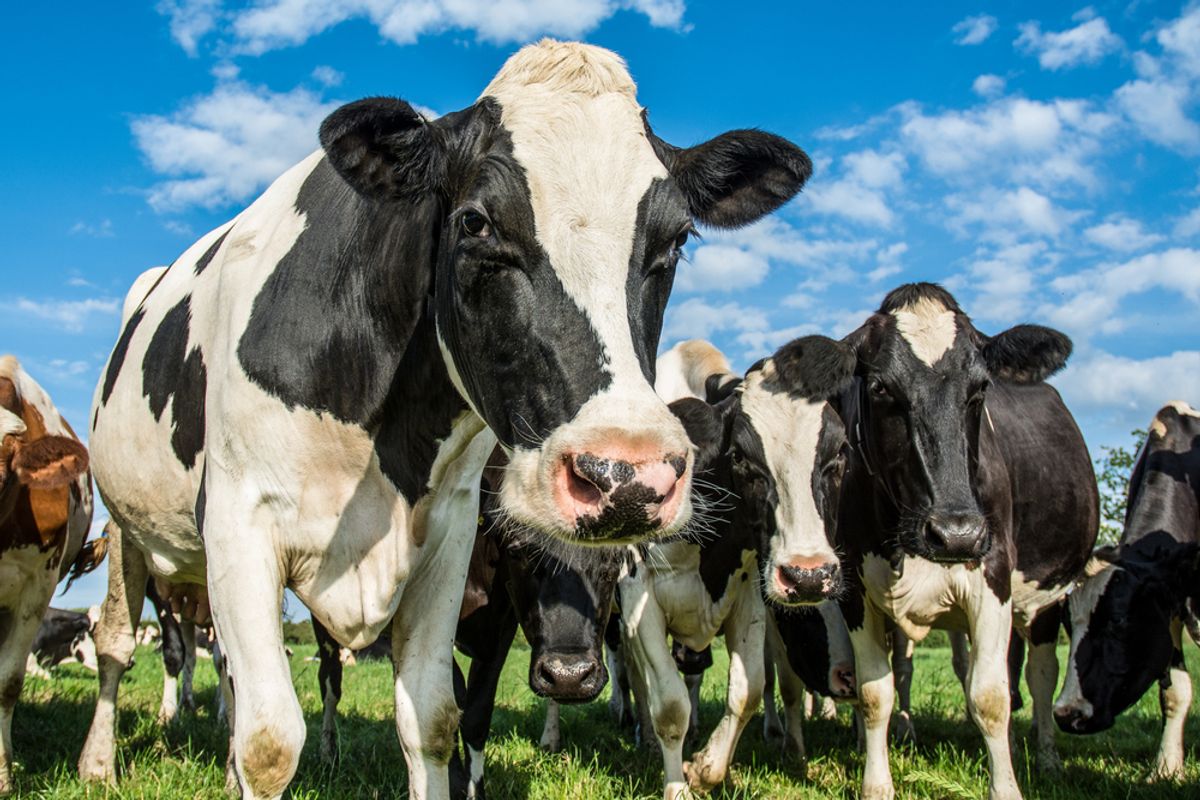The companies that did the most to change the food system this year weren't the ones that got rid of the antibiotics in their otherwise undesirable offerings (à la Chick-fil-A) or that marketed themselves as more sustainable fast food alternatives (hello, Chipotle). Instead, while McDonald's attempted to reverse its precipitous decline by convincing consumers that its nuggets are made from real chickens, a new breed of food companies began to enter the mainstream, banking on the hope that America is ready to move on from meat altogether.
A cool $83.4 million in third-quarter venture capital investments -- double the previous industry record -- says they may be onto something. Building on the hype surrounding 2012 break-out star Beyond Meat, these sustainable startups couldn't come at a more critical time, when issues like the massive ecological footprint of beef production, animal and worker rights, the flawed poultry inspection system, the enormous threat of antibiotic resistance -- and the mere fact that we're not going to be able to provide enough animal protein to feed our rapidly growing planet -- are all coming to a head at once.
Their enormous, optimistic promise is that a healthier, more sustainable future may not require us to give up eating meat. Instead, it will be about expanding our definition of what meat, dairy and seafood can be. And, as we're learning, it can be almost anything: plants, bugs, even celebrity stem cells (well, maybe). Below, five highlights from the bold, brave year in meat alternatives:
Mayo that isn't mayo
The Great Mayo Battle of 2014 is still unfolding, but it already has all the elements in place to make it the harbinger of the coming food revolution: a scrappy, vegan startup attempting to disrupt the food industry comes up against a foodstuff giant with billions invested in maintaining the status quo. In the end, it all came down to a battle of semantics: Can you call your product "mayo" if it doesn't have eggs in it?
Hampton Creek thinks so, which is why it named its eco-friendly, egg-free mayonnaise alternative "Just Mayo." Unilever, owner of mayo standard-bearer Hellmann's, struck back with a lawsuit arguing that the word "mayo" is reserved for spreads with egg in them; Hampton Creek, it added, is “already is stealing market share from Hellmann’s.” Unilever eventually dropped the lawsuit amid public outcry, but the real story here isn't about Big Food "bullying" a high-minded startup -- it's just how intimidated that giant appears to be by its sustainable imitator.
The veggie burger that bleeds
If meat and dairy-free alternatives are going to take over, they'll do so by convincing consumers that they're just as good as, if not better than, the stuff they're trying to replace. Hampton Creek isn't the only one following this business plan; which is how we ended up with headlines, this October, about a biochemist hard at work developing a "veggie burger that bleeds" -- just like "real meat." Impossible Foods, a startup founded by Stanford professor Patrick Brown, is beefing up its plant-based patty with heme, a molecule found in animal blood that gives meat its distinctive taste -- derived, in this case, from legumes. The company went on to generate $75 million in third-quarter funding.
The idea isn't to console vegetarians with a convincing alternative, but to make the alternative so convincing that even avowed carnivores won't notice, or mind, the difference.
Sushi that's made from tomatoes
When master chef Jiro Ono said that overfishing is changing the future of sushi, he probably didn't imagine something this extreme: A wildly successful Kickstarter project is attempting to replace bluefin tuna with tomatoes. Chef James Corwell uses a sous-vide process to create "sustainable vegan tuna" that at least looks a whole lot like the original. Early taste-tests are fairly positive as well. But it doesn't really matter whether or not we're convinced -- we've already nearly eaten the bluefin tuna to extinction. In the near future, tomato sushi may be our only option.
Snacks that are made from bugs
Cricket potato chips. Sexy scorpions. Mealworm macaroons. In the year and a half since the United Nations Food and Agriculture Organization announced that it's time to start taking insects seriously as a protein source, a number of snack startups have risen to the challenge -- and the public (and investors) has started to take notice. The Massachusetts-based startup behind Chirps cricket chips raised over $70,000 in a Kickstarter campaign, and Exo, the company behind a popular line of cricket-flour energy bars, yielded $1.2 million in third-quarter investments. The many options rolling out may still sound unpalatable, but they've also become a $20 million industry -- meaning the ick factor might not end up being enough to stop the rise of Big Bug.
Meat that's made from celebrities' stem cells
It never became entirely clear what Bite Labs was trying to say with the bizarre website it launched back in February, but on the surface, the pitch is simple enough: The "startup" is “offering highly controllable meat production without the animal cruelty, waste and environmental impacts of industrial farming." And it's doing so by cloning celebrities.
More specifically, its plan is to grow meat from the tissue samples of high-profile donors, and then turn it into salami. Adventurous eaters would be able to taste James Franco (envisioned as "smoky, sexy and smooth"), Jennifer Lawrence ("a charming and confident flavor profile") or perhaps Kanye West ("heavy, and boldly flavored").
"In-vitro meat has the potential to revolutionize the meat industry, with environmental, animal rights and eventually economic benefits," a spokesman, known only as Kevin, explained. "We hope that our campaigning efforts will confront people with the very real possibility of a lab-grown meat future."



Shares